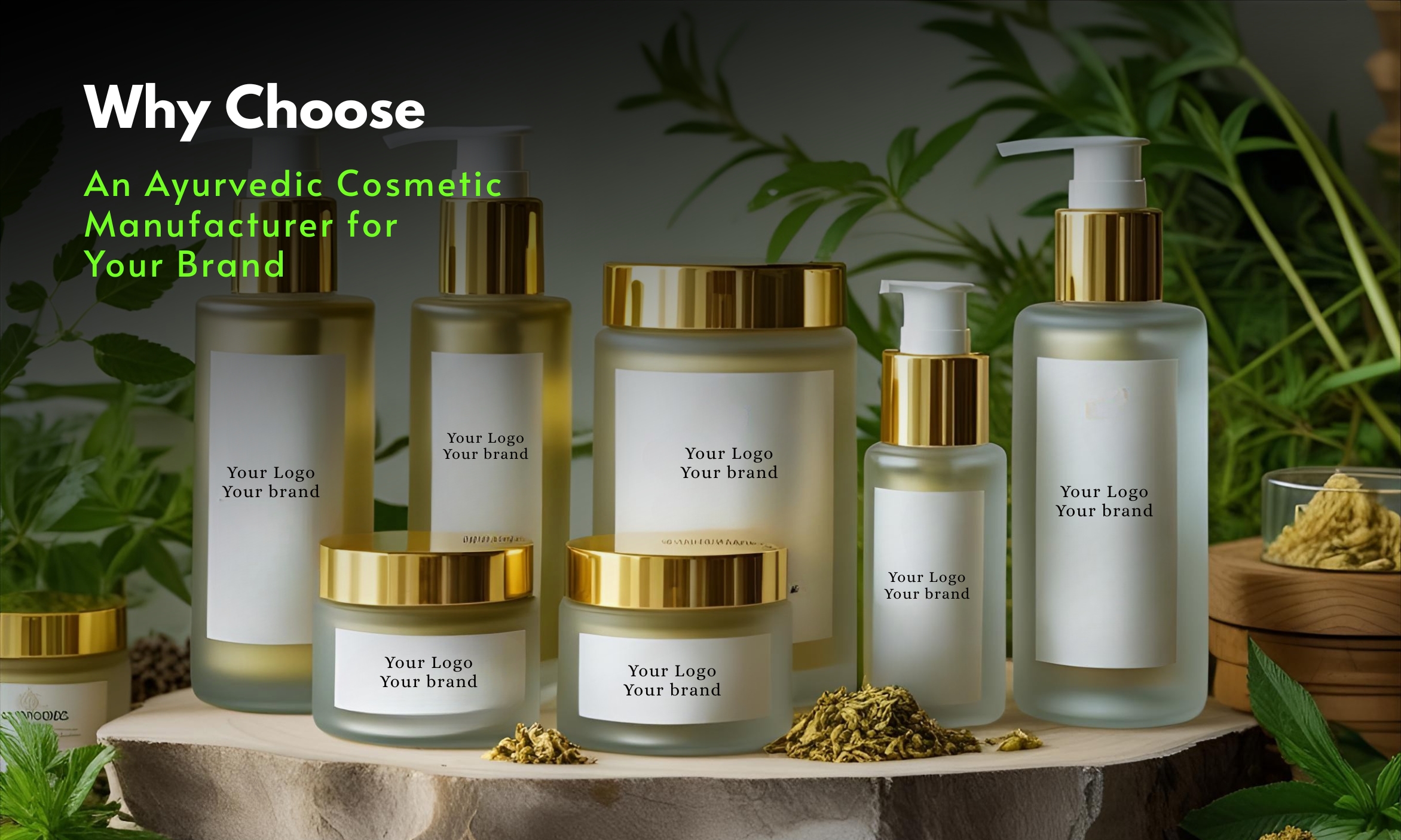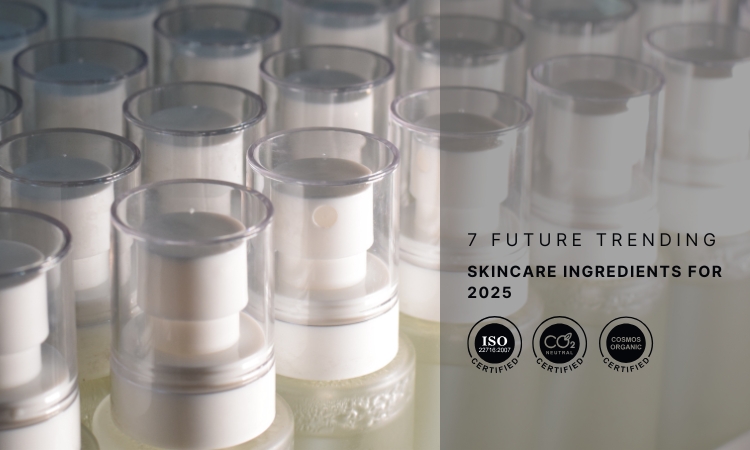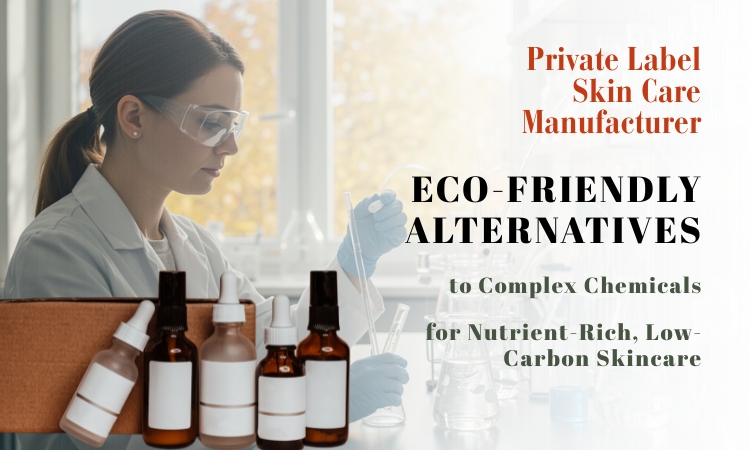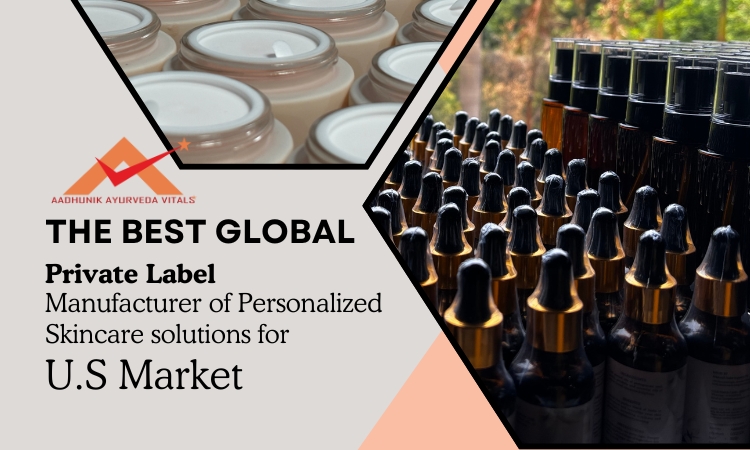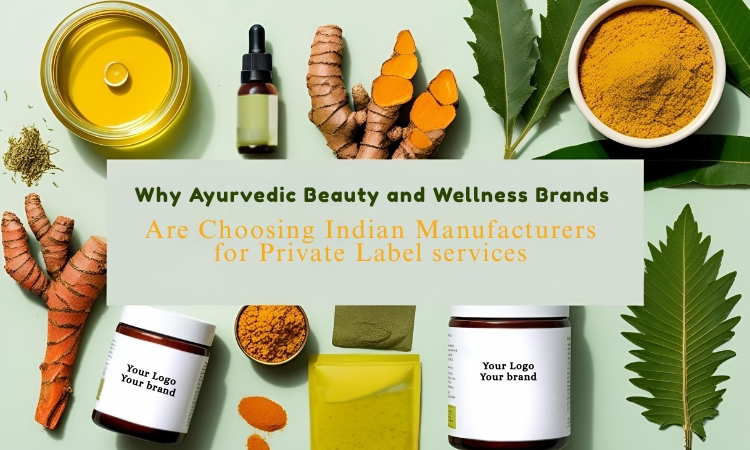
Organic vs Ayurvedic Skincare Manufacturing: What's the Difference?
Organic vs Ayurvedic Skincare Manufacturing: What's the Difference? | The Philosophical Core: Nature vs Tradition | Ingredient Profiles: Herbs vs Certification | Manufacturing Approaches: Lab-Tested vs Tradition-Backed | Regulatory and Certification Differences | Formulation Customization and Seasonality | MOQ Flexibility and Private Label OptionsIn the ever-growing skincare industry, the demand for natural, plant-based products has given rise to two major categories: organic skincare and Ayurvedic skincare. While both promise safe, chemical-free formulations, they are rooted in different philosophies, manufacturing processes, and ingredient profiles.
As a manufacturer, understanding the distinction between these two systems is essential for brands looking to build trust, ensure product efficacy, and cater to the specific needs of their target audience. We'll explore the key differences between Ayurvedic skincare vs organic skincare, explain what goes into manufacturing each type, and guide you in selecting the right path for your brand's identity.
We will also share valuable insights on sourcing, compliance, export potential, and how working with a certified organic skincare manufacturer India or a leading ayurvedic skincare manufacturer can position your brand for long-term success.
The Philosophical Core: Nature vs Tradition
Organic Skincare is primarily driven by the idea of clean, sustainable, and environmentally conscious living. It focuses on avoiding synthetic ingredients, pesticides, GMOs, and chemicals. The goal is to harness the power of nature in its purest form.
Ayurvedic Skincare, on the other hand, is based on a 5,000-year-old holistic health system that focuses on balancing the mind, body, and spirit. Ayurveda believes that skincare is not just topical but connected to internal health. Formulas are often prepared with a deep understanding of doshas (body types) and seasonality.
While organic and Ayurvedic are distinct concepts, many brands use the terms interchangeably, causing confusion among consumers. Ayurvedic formulations are traditionally based on body doshas and holistic healing principles- but not all brands follow these authentic practices. On the other hand, organic refers to the use of clean, chemical-free ingredients, yet not every Ayurvedic product today is truly organic or free from synthetic additives. Many so-called Ayurvedic products in the market today contain chemicals, stabilizers, and preservatives- a clear deviation from classical Ayurveda. As a private label manufacturer, we emphasize the importance of transparency and authenticity - offering truly clean, dosha-balanced formulations rooted in genuine Ayurvedic principles or certified organic, depending on your brand's vision.
While both philosophies are rooted in nature, Ayurvedic skincare includes additional layers of personalization, ritual, and healing.
Ingredient Profiles: Herbs vs Certification
One of the main differences between Ayurvedic skincare vs organic skincare lies in their ingredient selection and validation.
- Organic skincare uses ingredients certified by global agencies such as USDA Organic, Ecocert, or India Organic. These can include plant oils, extracts, waxes, and essential oils, grown without synthetic pesticides or fertilizers.
- Ayurvedic skincare uses time-tested herbs, roots, barks, and minerals, often sourced from traditional farms or wildcrafted from forests. Popular ayurvedic ingredients for monsoon include neem, tulsi, manjistha, turmeric, and vetiver-known for their antibacterial and balancing properties.
A certified ayurvedic raw material supplier India plays a vital role in delivering fresh, ethically harvested botanicals needed to preserve the authenticity and effectiveness of Ayurvedic formulations.
Manufacturing Approaches: Lab-Tested vs Tradition-Backed
An organic skincare manufacturer India typically works in modern labs with certified organic ingredients, ensuring pH-balanced, dermatologically tested, and globally compliant products. Formulations are minimalist and often focus on soothing, hydrating, or anti-aging benefits.
A leading ayurvedic cosmetic manufacturer India combines traditional preparation methods (such as decoctions and oil infusions) with modern technology to produce Ayurvedic formulations like lepas, churnas, tailams, and kashayas. These techniques require a deep understanding of Ayurveda and access to authentic Ayurvedic texts.
Regulatory and Certification Differences
Organic skincare needs certification from authorized organic bodies that inspect the farms, ingredient processing, and final product formulation.
Ayurvedic skincare, while it may not require organic certification, must follow guidelines from the Ministry of AYUSH, Govt. of India. It may also be listed under classical or proprietary Ayurvedic products depending on the formula and claims.
Working with an experienced ayurvedic skincare manufacturer ensures that your products adhere to these compliance standards, while also allowing you to explore traditional therapies with modern relevance.
Formulation Customization and Seasonality
Organic skincare formulations are typically developed for broad use across skin types, focusing on universal benefits like hydration, repair, and nourishment.
Ayurvedic skincare, however, is tailored based on:
- Doshas (Vata, Pitta, Kapha)
- Seasons (e.g., ayurvedic ingredients for monsoon like sandalwood, vetiver, and neem are used to balance humidity-induced skin concerns)
- Age and lifestyle factors
This seasonal and personalized approach makes Ayurvedic skincare ideal for brands targeting wellness-conscious or culturally rooted audiences.
MOQ Flexibility and Private Label Options
For emerging skincare brands or regional entrepreneurs, low minimum order quantity (MOQ) is a big advantage. An ayurvedic manufacturer low MOQ India offers:
- Custom formulations with 100% Ayurvedic ingredients
- Flexible packaging and labeling options
- Batch testing and traceability
Meanwhile, organic skincare manufacturer India partners provide certified ingredients and advanced formulations but may require higher MOQs due to the cost of certification and quality testing.
Global Export Potential
Both organic and Ayurvedic skincare have a strong demand in global markets. However, their appeal varies:
- Organic skincare is favored in Western countries like the US, Canada, and parts of Europe where organic certifications are highly valued.
- Ayurvedic skincare appeals to Middle Eastern, Southeast Asian, and European markets that are interested in holistic wellness and traditional healing systems.
To enter export markets successfully, working with a reliable ayurvedic product manufacturer for export or an organic skincare manufacturer India who understands international labeling, documentation, and regulatory requirements is crucial.
Sourcing and Sustainability
Sourcing practices are another major differentiator.
- Organic skincare manufacturers source from certified organic farms that follow sustainable farming practices.
- Ayurvedic skincare manufacturers work closely with traditional herbal farms, forest cooperatives, and ayurvedic raw material supplier India networks to ensure ethical harvesting.
Brands aligned with sustainability and biodiversity conservation can proudly showcase these sourcing stories as part of their marketing and ethical commitment.
Branding and Marketing Strategies
- Organic skincare brands focus on transparency, certifications, eco-friendly packaging, and clinical validation.
- Ayurvedic skincare brands build on storytelling, ancient wisdom, ritual-based self-care, and Ayurvedic consultations.
As a manufacturer, offering white-label or private-label solutions tailored to either of these segments helps brands craft distinct identities and connect meaningfully with their audience.
Conclusion
In the debate of Ayurvedic skincare vs organic skincare, there is no one-size-fits-all answer. Both systems have unique strengths and serve different market needs. From a manufacturer's standpoint, the choice depends on:
- The brand's philosophy and target market
- Desired ingredient sourcing and certification
- Product performance and customization needs
- Compliance and export requirements
Whether you're inclined towards science-backed, certified organics or deeply rooted Ayurvedic heritage, India offers unmatched resources and expertise in both categories.
By collaborating with a trustworthy organic skincare manufacturer India, or a leading ayurvedic cosmetic manufacturer India, or a flexible ayurvedic manufacturer low MOQ India, you can launch a powerful, purpose-driven skincare line that connects with conscious consumers across the globe.
FAQs:
1. What is the main difference between Ayurvedic skincare vs organic skincare?
Ayurvedic skincare is based on traditional Indian healing systems, while organic skincare focuses on certified natural clean ingredients grown without chemicals.
2. Which is better: Ayurvedic or organic skincare?
It depends on your brand goal. Ayurvedic skincare is ideal for holistic and traditional wellness lines, while organic skincare suits eco-conscious and minimalist formulations.
3. Can Ayurvedic skincare also be organic?
Yes, if Ayurvedic ingredients are grown and processed under organic standards, they can be certified organic too.
4. How do I start manufacturing Ayurvedic skincare?
Work with an experienced ayurvedic skincare manufacturer and source herbs from a reliable ayurvedic raw material supplier India.
5. Can I export Ayurvedic skincare products from India?
Yes, by partnering with a compliant ayurvedic product manufacturer for export, you can export to global markets.
6. What are the best ayurvedic ingredients for monsoon skincare?
Neem, turmeric, vetiver, sandalwood, tulsi, and aloe vera are some of the top ayurvedic ingredients for monsoon skincare formulations.
Need help deciding which route is right for your brand? Get in touch with a certified manufacturer and create your own natural skincare success story today!
